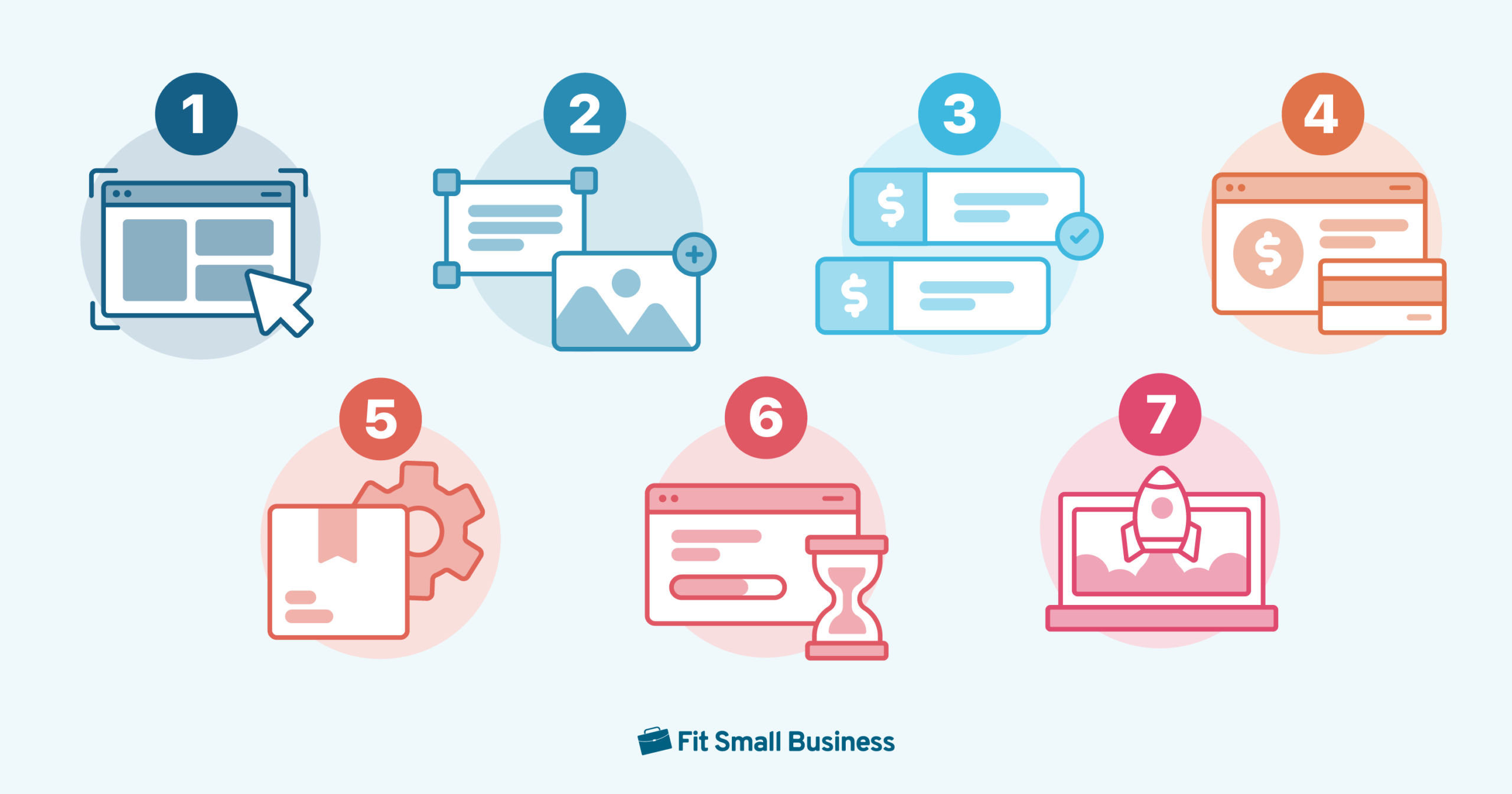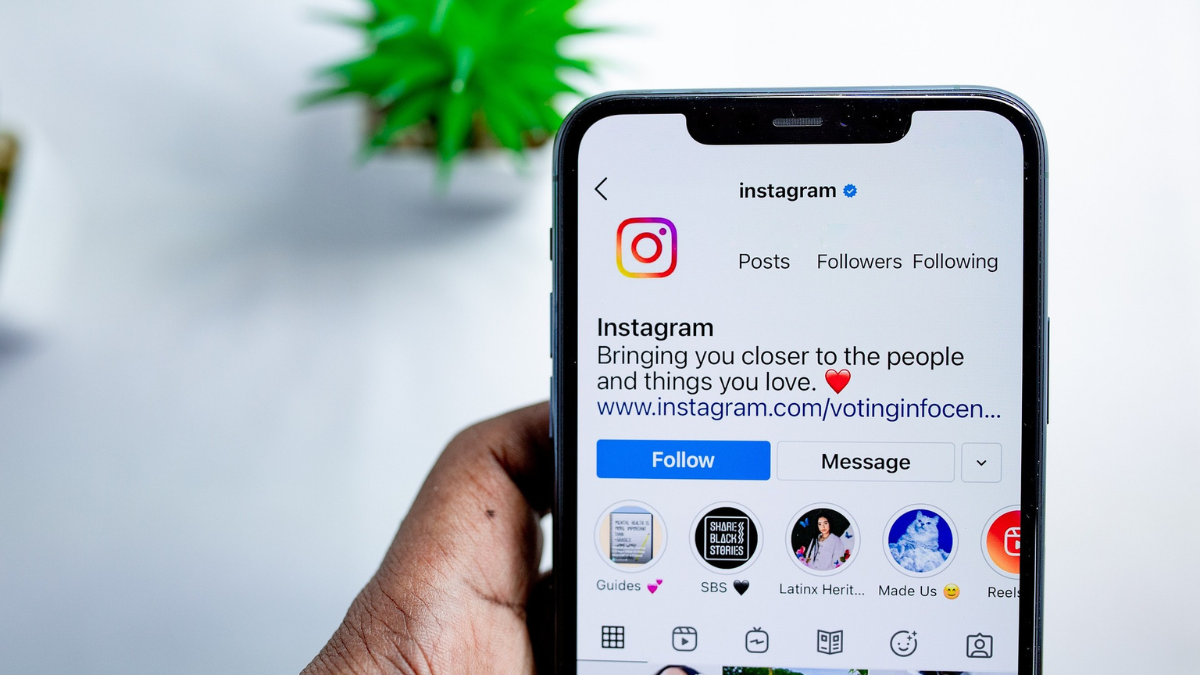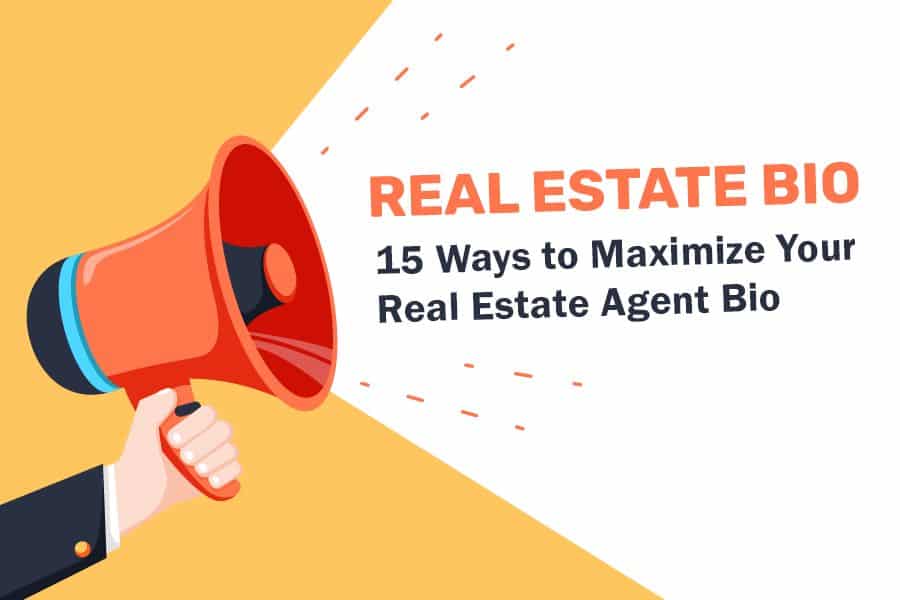How to Build a Strong Real Estate Branding in 12 Steps (+Examples)

Creating a memorable, unique, and appealing real estate brand is key to building authority in your community as a real estate professional. Developing powerful realtor branding doesn’t happen overnight and includes evaluating competition; creating a logo, website, and marketing materials; and building your online presence. To help you become confident in the process and grow your business, here are 12 essential steps, tips, and examples on how to build a strong real estate branding online.
1. Evaluate the Competition
To establish a distinctive real estate brand, empower yourself by thoroughly analyzing the most successful agents, teams, and brokerages in your area. You can pinpoint any gaps in the market by evaluating their business models, strengths, and weaknesses. Performing a competitor analysis will provide valuable insights into the market landscape, enabling you to make well-informed decisions and enhance your standing within the industry.
It’s essential to conduct a thorough real estate competitive analysis by following these strategies:
- Identify competitors by interviewing your customers, running a Google search, and checking the list of presenters and companies available at your niche conferences to identify top players and leading brands.
- Categorize your competitors based on their strengths, weaknesses, and market position.
- Understand how your competitors position themselves and what sets them apart.
- Review the key messages and branding of your competitors.
- Analyze your competitors’ websites to understand their online presence and messaging.
- Perform a comprehensive audit of your competitors’ social media activities.
- Use the insights gathered to develop actionable strategies to improve your own positioning and real estate marketing plan and efforts.
2. Determine Your Unique Selling Proposition
A unique selling proposition (USP) is the product or service that makes you unique in your market. In this instance, your real estate services, methods, and business niche differ, making you more valuable to clients than other agents. If you’re a new agent or just new to branding, learning how to build strong real estate branding and determining how to differentiate yourself may be confusing.
Here are some questions to help you develop a USP for your branding and get your wheels turning about your unique offerings compared with other agents in the area:
- Are you tech-savvy?
- Do you have excellent marketing skills?
- Do you have great closing skills?
- Do you have a great network of agents, lenders, or contractors?
- How many deals have you closed?
- Do you specialize in a small neighborhood?
- How well do you know the neighborhood?
- Are you a master of Facebook advertising?
- Do you have a great eye for design?
- Do you have a professional background or skills that can help your clients?
- How long have you worked in the industry?
- What’s your work ethic like?
- Are you a data-oriented person?
- Great at crunching numbers?
- Do you have strong organizational skills?
Once you’ve gathered your answers, compare them with your competitor’s research. This will allow you to identify areas of your business where you stand out from others, like your previous careers, personal strengths, or niche expertise.
Sample brand colors and photo colors
To make the process easier, take screenshots of their websites, logos, and slogans and compile them into a document in Canva. Seeing them all together in one place will help you find out what they have in common or give you an opportunity to create a new and unique brand based on your research. Canva even has a tool to assist you in gathering colors from photos and saving them to your brand kit. Start using Canva for free today.
3. Establish a Timeline When Creating Realtor Branding
Building a strong and trustworthy real estate brand takes time and should not be rushed. Setting specific goals and deadlines for brand development avoids unnecessary spending on marketing tools. It is important to create branding elements to generate real estate leads, such as a logo, social media templates, and a headshot. These serve your clients and contribute to your business growth, income, and brand, instilling confidence in your strategy.
Here’s an example of a timeline with the key aspects to include and sample dates:
During this planning time, consider the foundation of your brand, such as your ideal clients (like first-time homebuyers vs investors or young professionals vs empty-nesters), the geographical area you plan to work with, your values, and your mission. Once you have these foundational elements, you can start building basic branding elements that will speak to the right people and set you apart from the competition.
4. Use Professional Tools & Experts
Many agents and brokers invest significant time and effort in learning how to build strong real estate branding using graphics programs and manually creating their own real estate marketing materials. However, by outsourcing this work to design companies and professionals, you can save time, allowing you to focus on your core business. Whether you choose to hire a professional or do the work yourself, make sure you use the right sources and tools, like the platforms listed below:
5. Decide on Your Mission, Values & Vision Statements
Every brand has core values that define how they serve and market to clients. Even if you don’t already have a strong mission or a cause you’re passionate about, it’s not difficult to define the values that are most important to you. To blend these values into your real estate business plan, they should be personal and beneficial to your clients. For example, honesty may be one of your strongest values.
Check out a few examples of realtor branding ideas below that have built a brand around their values:
Latham Jenkins, a Wyoming real estate agent, emphasizes providing an experience and a lifestyle rather than just a real estate transaction. He lists three key strengths that help him offer this unique experience: real estate services, lifestyle insights, and relationships with financial planners. This approach is an excellent example of setting oneself apart from the competition when building a brand as a real estate agent.
The Erica Rawls Team immediately addresses its primary value on the home page. The value of educating clients speaks to the team’s desire to serve clients or make a paycheck and equip homebuyers and sellers to make the best choices for their needs. One of the first ways that its brand operates on this value is by offering a free consultation with its agents instead of immediately asking for a sale.
Example real estate website with differentiating feature (Source: Erica Rawls Team)
This real estate company uses a full page of its website to describe its clearly defined mission, vision, values, and culture. Since this is a real estate company, the values show how it aims to make a difference in clients’ lives and the lives of the real estate agents on the team.
6. Create a Memorable Logo
Although your logo may seem like a small piece of your branding, it’s an integral element of your real estate agent branding. It will be displayed on your ads, real estate business cards, website, social media, and direct mail, so it’s important to create a professional logo that you can use to build brand recognition over time. Logos should be based on your values, target audience, and personality.
Take a look at these real estate agent logo ideas to see how logos can inform your branding:
By incorporating the @ sign into its logo, @properties achieves a specific goal for its target audience. The @ sign is instantly recognized by young generations as a fixture of emails and social media handles, conveying a trendy brand that values online communication. The brand’s title also communicates that @properties is where to start looking for a property.
Julian Pilarski strikes a clean note with this upscale mixture of initials and verbiage in a circle. It’s an example of strong branding with a stylized version of initials combined with the tagline “real estate services.” The various elements of the logo work together without seeming to detract from each other. The logo is clean and sturdy, conveying confidence and trust without feeling cluttered.
The point of a logo is to communicate something about your brand without needing a full explanation. Compass Real Estate’s logo does that with a simple line through the letter O, representing a physical compass. This clear symbolism crosses all language barriers, and the large font makes it easy for buyers and homeowners everywhere to recognize this brand.
7. Pen an Unforgettable Slogan
Realtor taglines and slogans create a memorable brand and an emotional connection with potential clients. Consider your USP and competition research to develop catchy slogans. Brainstorm unique features of yourself, your clients, or your farm area, and play around with different words and phrases until you find something that fits your brand. Read our guide to creating a real estate team name for more ideas.
Take a look at the following slogans for more ideas on how to build a strong real estate branding online:
The real estate slogan of Long & Foster condenses the entire real estate buying process into five short words, with a focus on the emotional closing. The slogan “enjoy” aims to leave potential leads feeling positive and appeals to potential clients’ emotional side. It is designed to attract residential clients and evoke the emotions involved in the buying and selling process.
This slogan underscores the emotional appeal of feeling at home. By capitalizing on every homebuyer and seller’s desire, Allen Tate projects an ability to connect with its clients in a way that understands the ultimate impact of a home purchase. When creating your realtor branding elements, think about similar ways to emotionally connect with potential buying or selling clients.
This simple slogan, “real estate with style,” is another example of how your tagline can appeal to a specific type of client. Take a look at Sarah Noel, a realtor who incorporates her slogan into her Instagram bio. Most real estate branding examples only have a slogan on the homepage of their website, but Sarah shows that you should include it on every marketing channel you use.
Real estate agent tagline in Instagram bio (Source: Instagram)
8. Take Your Real Estate Headshot
A real estate headshot is a key part of your branding. Many agents include it on different marketing pieces like their website, flyers, and even their real estate signs. Since it can be a saturated industry, adding a face to the branding of real estate agents can build familiarity and trust. However, even if you don’t include your headshot on many marketing materials, it’s important to have a strong realtor headshot on your website and social media pages.
Khali Gallman shows exactly what a strong headshot looks like. The image quality is bright and clear, and her apparel, pose, and expression convey professionalism and positivity. In addition, she uses her headshot on her social media accounts and website, so potential clients constantly feel like they are communicating directly with the person behind the brand.
A social media post branded with a realtor headshot (Source: Facebook)
This real estate team has a headshot of the team and individual headshots on their website for different marketing and branding needs. Beth and Ryan Waller made their headshot stand out by standing in front of a brick background, giving the photo an urban feel and making it appear more accessible.
This realtor headshot is another example of professional-quality photography, setting, dress, and expression. It is also displayed on the real estate team’s website, along with a GIF of the agent moving around. It’s a relatively simple way to make the headshot stand out by being dynamic instead of static.
9. Design a Website & Landing Page
For most real estate professionals, a website is essential for marketing. Even if you use ads or social media, a website allows clients to learn about you and find properties. Landing pages can also be useful for targeting specific audiences and collecting leads. If you need help, look at other agents’ websites for ideas and get feedback from your target audience.
This real estate website doesn’t have an overwhelming number of pages or a confusing structure but strategically uses one landing page for each client’s needs and to generate real estate leads. There is a clear menu at the top of the page for first-time homebuyers, downsizers, first-time homesellers, relocators, and rent-to-own clients. This allows site visitors to clearly see what Khali Gallman, a realtor in South Carolina, offers and how she can address their specific needs.
The Vantage Point Team intentionally uses its website to focus on the team’s unique services and expertise. It specifies the amount and type of experience the team offers and the way they work for clients as a collaborative team. With clear branding, communication, and strong realtor bios, the website builds trust and attracts clients who want to feel supported.
Real estate team Beth and Ryan Waller uniquely uses blog, video, and podcast content to grow its business. Therefore, its website is a perfect example of how you can drive traffic and offer a full experience. Its homepage provides a clear menu for clients to access content, learn more about the team, or contact them to start a real estate transaction. In addition, it provides an easy-to-understand menu with its blog, video, and podcast content that appeals specifically to its audience.
Example Placester website template (Source: Placester)
Building a website from scratch will likely require an extensive amount of time and resources. One of the best solutions to this problem is using a tool like Placester, a real estate-specific design service that allows you to create a custom website in a matter of hours. You can use one of Placester’s 30 real estate templates or browse the Placester marketplace for one-time or ongoing services to build or enhance your website and marketing strategy. Try Placester free for 30 days.
10. Produce Real Estate Branded Collateral & Promotional Materials
When building a real estate brand, you need to produce branded materials like flyers, letterheads, and social media graphics. Check your marketing strategy and business plan to decide what materials to make. If your target audience is most active on social media, create online resources like a real estate newsletter. If you want to reach homeowners in a specific location, use print materials or local events. Make sure the brand materials you create fit your business to help people recognize your brand and become your clients.
Here are a few examples of unique branded marketing materials:
Although this document looks similar to a newsletter, it’s an agent spotlight that is sometimes highlighted on the team’s website. It highlights two bilingual team members, thus being able to serve an additional audience. It was most likely distributed originally via email, but it can continue to build rapport and generate leads by being shared on the website, social media, emails, and even in print.
Real estate mailers have proven to be an effective marketing strategy for decades. To succeed with real estate direct mail, sending specific information and incentives is ideal. This postcard asks a specific question that would be highly relevant to owners of expired listings or for sale by owners (FSBOs). Plus, it offers an incentive and displays the agent’s contact information and headshot, making it extremely easy and appealing for this target audience to take action.
Real estate postcard for active or expired listings (Source: PostcardMania)
Keller Williams is elevating its services by offering personalized and customized marketing materials specifically tailored for real estate professionals. This new initiative aims to provide agents with engraved marketing materials to help them stand out in a competitive market and make a lasting impression on potential clients.
Example of real estate branded marketing products (Source: Resource.Direct)
Unique, customizable products (Source: VistaPrint)
A benefit of building branding for realtors in 2024 is that there is no limit to the number of unique ways to promote your business. While having real estate flyers and signs is important, don’t stop there. With a one-stop shop like VistaPrint, you can easily customize unique materials like pens, mugs, beach towels, and flash drives to promote your real estate business. Scroll through hundreds of unique options to build your brand on its website.
11. Create Profiles on Major Listing Websites
Even if you create the perfect real estate brand for yourself, it won’t successfully grow your business if you don’t put it where people will see it. One of the simplest ways to find leads and drive traffic to your brand is by creating a team or agent profile on the top real estate listing websites. Most real estate platforms offer the ability to add extensive details to set yourself apart from the competition.
Here are some profile examples created on the most popular real estate platforms:
Add as many details as possible about your specialties, awards, contact information, and even a slogan to your public profiles. Tiago Ferreira has a great example of how to fill out your Zillow biography by including your specialties, values, and accomplishments.
This profile on Realtor.com shows how filling out all the details can help users understand your brand before even visiting your website or social media profiles. Val Videgain’s profile does a great job of drawing a picture of his strengths and interests—attracting the right type of client. Plus, he chose a beach picture for his header image to further cement his brand.
The Zillow profile for the Dani Beyer Real Estate Team provides a comprehensive showcase of client reviews and ratings, introducing team members along with their years of experience, specialties, and public social profiles. This is an exemplary model of a professional and informative profile on prominent real estate listing websites.
Dani Beyer Real Estate Team Zillow profile (Source: Zillow)
Creating a Zillow agent profile is free and can help potential clients find you more easily. However, when you’re ready to increase your lead generation massively, become a Zillow Premier Agent. Zillow Premier Agents get the top spots in searches and have their profiles shown on any local listings that aren’t already claimed.
12. Build Your Online Presence
Social media is crucial for spreading awareness and getting your brand in front of potential clients. It is also important to build trust since 50% of consumers say they trust online business reviews as much as personal recommendations from friends or family. Here are some of the most widely used social platforms to think about:
You do not have to use every social media platform available, but you should choose two to three that you are familiar with and can commit to using consistently. Before choosing your platforms, consider your target audience’s demographics. If your audience is first-time homebuyers, Facebook would be your best outlet because 63.3% of their audience is between 25 and 54 years of age. Building an online presence to reach your intended clientele will yield better leads and more growth.
Here are a few examples of how your branding can help build your online presence:
This graphic serves as the LinkedIn header image for Aviva Sonenreich, who is also an extremely popular commercial real estate broker on TikTok. Her branding colors, fonts, and titles match on every social media platform, and this graphic is spaced to fit her LinkedIn profile. It specifically calls out her ideal client and her services without being too busy or overwhelming.
Warehouse Hotline LinkedIn Header (Source: LinkedIn)
Sharing educational content is important to any successful real estate social media marketing strategy. However, if you offer similar services to other agents or teams in your area, your content could easily be mistaken for someone else’s. This real estate team helps differentiate its content by including its logo on all social media images. This helps build trust and authority because readers associate the team’s branding with informative and helpful content.
Instagram post with realtor logo (Source: Instagram)
Roots Real Estate shares social media content with beautiful images, in-depth information, and buying and selling tips while maintaining a clear branding design. The content design is not repetitive but consistent. When their posts appear in social media feeds, their followers instantly recognize the content even without seeing the company name.
Roots Real Estate consistent social media branding (Source: Facebook)
Why Is Real Estate Branding Important?
Without making strategic choices about your real estate brand marketing strategy, it’s unlikely that potential clients will notice or remember you. Building a realtor brand can seem confusing and overwhelming, but it essentially comes down to differentiating yourself from the other real estate agents marketing to your audience.
Here are a few notable statistics for branding for real estate agents that prove its importance:
- The total B2B brand advertising spend in 2022 was $32 billion, and it is expected to reach $37.7 billion in 2024.
- Nearly 40% of shoppers say they must buy from a brand five or more times before considering themselves loyal.
- Over 60% of the Fortune 500 companies use combination logos.
- Blue is the top logo color among Fortune 500 companies, accounting for nearly 40% of the list.
- People make subconscious judgments about a product or brand within 90 seconds.
- 65% of consumers have felt an emotional connection with a brand.
- Businesses and brands that inspire stronger customer emotions receive three times more referrals and word-of-mouth business.
- One in four consumers thinks that speaking out about social issues and causes makes a brand memorable.
Common Realtor Branding Mistakes
Creating a real estate brand is organic and develops over time. Challenges and adaptations are inevitable even when following steps to build a strong foundation. It’s important to avoid common branding mistakes to establish and grow a brand that will benefit your career in the long term. A few of the most common real estate branding mistakes include:
Bottom Line
Even though building a realtor brand can require a lot of work, it is foundational to building a long-term real estate career. An effective brand will encompass your values and services and resonate with your ideal client through online and offline marketing. By establishing the right real estate brand for you and your clients, you can effectively build your client base, show off your personality, and grow a successful business.




